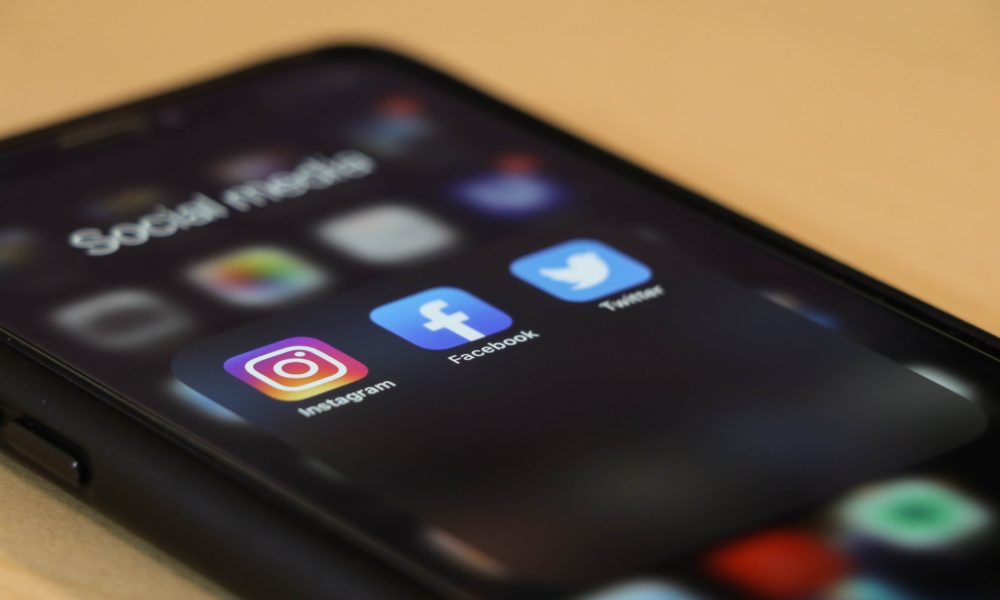Social media has grown to be an integral part of our daily lives, but many of us have little to no idea about the design behind the apps we use and the powerful influence they hold over our lives.
In the Netflix documentary “The Social Dilemma,” former employees, many of which attained high-level positions at major tech companies including Facebook, Google, Youtube, Twitter, Instagram and others, share the side of technological developments that users don’t see.
Though the positives of technology and social media are evident and encouraging—people reuniting with long-lost family members, or connecting with organ donors—the negatives seem to be more latent. Unless you have experience in technology, you may be completely unaware of the “curses” being warned. As technology progresses, so do the negatives: tech addiction, fake news, polarization.
The vastness of the Internet creates a feeling of freedom and personal choice, but the reality is that we have little choice in it at all. The documentary explains how every action you partake in online is recorded and predicted. They know every image you look at, and for how long. They can tell if you’ve been looking at your ex’s pictures, if you’re feeling depressed and lonely.
These tech companies monitor all your online habits and patterns to create models that predict your future actions.
Tristan Harris, a computer scientist who formerly worked at Google, described this in the documentary as being like avatar voodoo dolls. All of this is done as an attempt to fine tune the posts and ads projected at you, with the end goal to increase time spent staring at screens.
Jaren Lanier, who is the computer scientist that is considered to be the founding father of virtual reality, explained the drive behind this.
Since we don’t pay for social media, you have to question why the services are free. We aren’t the customers, advertisers are, and they are paying to show us ads. Lanier went further though, describing the product being sold to advertisers as “the gradual, slight, imperceptible change in your own behavior and perception.”
But for the ads to be accurate and certain, they must have significant data to make accurate and efficient predictions. This is known as surveillance capitalism, or capitalism profiting off infinite tracking online. Though this may seem minuscule, it should be noted that this new marketplace has allowed for Internet companies to become the richest companies in humanity.
Many people joke about the idea that the FBI is always watching, but the reality is that we are constantly monitored, and that this can have dire consequences for certain groups of people, such as undocumented folks.
Sean Parker, Facebook’s former president, addresses in the documentary how technology companies “exploit vulnerability in human psychology” to make them addicting, noting that all the inventors and creators, including himself and Mark Zuckerberg, understood that consciously, yet did it anyway.
Things that seem as minuscule as email notifications letting you know you’ve been tagged in a photo are purposeful—there’s a reason they don’t include the picture in the email. It forces one to log into social media, see the post, therefore creates the opportunity to become distracted by other posts and start indefinitely scrolling.
Even the process of just pulling down your feed to refresh it, anticipating a new post at the top is a tactic used to manipulate your attention. It’s positive intermittent reinforcement, another play on human psychology, that offers rewards at irregular intervals. This operates in our minds the same way slot machines do. This intentional design aspect evolves checking your phone and feeds to becoming an unconscious habit.
We all find ourselves doing this. If there’s a lull in our day, we check our phones. If we are feeling lonely, bored, unsatisfied or uncomfortable, we find ourselves looking towards our phone for reassurance. Though we don’t consciously think about it, unconsciously our brains know that checking our phone may come with a hit of dopamine. That hit of dopamine is what keeps us refreshing our feeds after already scrolling for an hour.
Content online is far more skewed and subjective than many of us understand, and helps create the political and social divide in our country. Searching the phrase “Is climate change” will come up with different search results depending on one’s location. In California, it may say “the biggest threat to our world”, while in a midwestern state it may display “a hoax” instead. Facebook and Youtube are two platforms who have gotten backlash for their algorithms only showing people posts that reaffirm their beliefs. The New York Time’s podcast, “Rabbit Hole” describes this phenomenon though the narrative of Caleb Cain, a man who became entranced with Youtube and ended up alt-right because of it.
This reaffirmation of beliefs is never countered by the other side. Because of this, flat-earthers never get videos on their feeds disproving their outlandish beliefs. Trump supporters only get news on their feed reaffirming their beliefs that are baseless. It is because of platforms like Facebook and Youtube, which funnel people down conspiracy theories with no lifelines to reality, that there are people who believe that the election was rigged, despite no proof.
The documentary explains that these algorithms can have a real life effect on people’s behavior and emotions without ever triggering user’s awareness.
We saw this most recently on Jan. 6, as hundreds of pro-Trump rioters stormed the Capitol because they believed the election was rigged, though fact-checkers nationwide have disputed Trump’s claims. These platforms are ran by artificial intelligence, and though they are incredibly complex and capable, they are not able to distinguish truth.
The documentary made me mindful of my own technological habits for a bit, but as time went by, so did my drive to stay off of social media sites. For about a week I wasn’t using Instagram or Twitter, and really felt clearer minded having space away from these platforms.
But time grudges on, and especially during quarantine there’s a drive for entertainment from our homes. I caved, downloaded Instagram again, and have almost completely reverted back to my usual social media habits. But now, at least, I am more conscious of my time spent online.
When I go to refresh my feed for a third time, I can muster up the will to question if there’s really a point, or if I should just go log off and read a book. The first step to reclaiming autonomy over our time is just being conscious of the tricks our phone plays on us to lure us back into its addictive arms.
A study by MIT found that on Twitter, false news circulates six times faster than real news. This can be incredibly dangerous in a time when countries like Russia are using fake news to interfere with United States and Ukranian affairs.
Though people often discuss concerns on when technology takes over our lives, Harris explains that artificial intelligence already runs our world. Further he warns that though technology hasn’t overwhelmed human strengths and intelligence yet, it has exceeded and overwhelmed human weakness. It is rooted in addiction, polarization, radicalization.
He explains that the human brain is like a hardware, and behind the screen are thousands of engineers and supercomputers with goals different than ours. Who do you think will win?
The reality is that 50 or so designers, predominately white men, in Silicon Valley are making decisions impacting two billion people. Two billion people are having thoughts not intended because of designers, and because of that technology companies should feel a moral responsibility for the effects of their creations.
Though we often see our technology in our lives as an efficient way to connect with people and easy means of entertainment, it is imperative to see the gravity in our advancements. Processing power since the 1960s has increased a trillion times, a rate of exponential growth that in unprecedented.
Compared to the advancement of cars since 1960s, which have only gotten about twice as fast. Our brains? Haven’t evolved much at all.
We cannot outsmart technology. Even those who helped develop and understand the interworking of these apps still find themselves addicted to their designs.
The reality is that technology holds unprecedented power, and has the ability to completely destabilize the fabric of our society. The documentary goes into more detail on how it can be used as a political tool to erode nations.
Technology is not the enemy, nor are the developers, most of which had nothing but good intent in the original development of their companies. But technology has the ability to bring out the bad in society, and that is what is at risk.
Modern life revolves around technology, and for our own wellbeing it’s imperative that we have transparency. It is important that when we’re sad we catch ourselves scrolling for prolonged periods, comparing our lives to others, and that we are able to have the will to step away.
We must be conscious of how we’re spending our time—staring at screens, or living life in a connected, meaningful way. Technology isn’t going anywhere, and technology companies have little incentive to change their business model because of financial incentives. But it is their business model, and lack of regulations, which is creating such detrimental effects.
Though technology has expanded to be an essential part of all our lives, regulations are still limited. Most of the regulations currently in place are not to protect users, but instead to protect the rights and privacy of these wealthy technology companies.
We must educate ourselves and demand these companies create a more ethical and balanced approach to their designs. Phone companies have laws and regulations regarding sensitive information about users to ensure they don’t do the wrong things, and that tech companies could easily follow that protocol.
As a college student, I’m not the one to say what laws will work best approaching this situation. But I do know that by combining the knowledge and ideas of the creators of these incredibly in depth and complicated platforms with the wisdom and understanding of our legislatures, that this issue can be resolved.
Because our world revolves around technology, it’s easy to forget how new it is. We aren’t completely cemented into this design of technology.
Nothing about technology is permanent—they can always redesign, recode, and reprogram the aspects of the technology created. But such change won’t be implemented on its own. We must demand better—better designs with moral and ethical standards in mind, and with the guidance of laws and regulations enacted to protect user’s privacy and information.
If we fail to address these issues, we’re likely to swoon under technology’s subtle spells, becoming stagnant slaves to surveillance capitalism, everyday empty-minded scrolling for longer and longer entranced by our phones.




